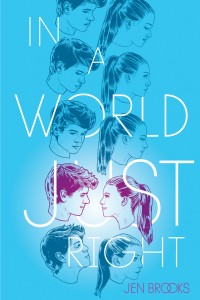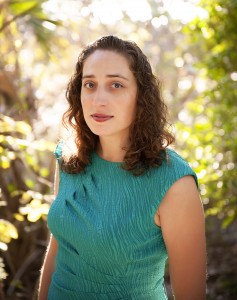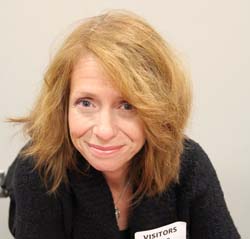Rhonda Mason
#mywritingprocess blog tour
Ive been tagged by my Freshman Fifteens buddy Kim Savage, author of After The Woods, to participate in the #mywritingprocess blog tour. Her writing process can be found here. As a taggee, Im supposed to answer the following four questions, so here goes:
1) What am I working on?
Well, I just finished the first draft of my second YA book in my contract with Simon & Schuster Books For Young Readers. Tentatively titled Jewelry, its the story of six high school seniors living with the (magical, disturbing) consequences of discovering a jewelry chest in a back yard pond when they were ten years old. Now that the manuscript is in my editors hands for a bit, I have to decide what to work on nexta revision of one of my two earlier manuscripts? Something entirely different? (I actually think I know the answer, but for now its a secret!)
2) How does my work differ from others of its genre?
Im not sure it does differ. That implies most other books in the genre are the same. Todays YA field is wide and complex, with room for genre-blending, experimentation, and a wide range of age-appropriateness. There isnt a formula to be different from, except for the requirement that the protagonist be a young adult. Almost anything goes, and thats one of the reasons I like writing YA so much. My two contracted books are a genre mix of contemporary, fantasy, and romance, and both contain a mysterious element. I also like to believe my stories have a takeaway that makes a reader think even after theyve finished the book, though I certainly am not the first YA author to hope this.
3) Why do I write what I do?
I bet theres a whole psychoanalysis of me that can be done to answer this question. The short answer, though, is that I write what I feel like writing. I chose to be a high school teacher for fourteen years, and now I write for that audience, so I guess I find something fascinating about that time of life. I also love science fiction and fantasy because I feel those genres have the potential to test characters in unusual and meaningful ways.
4) How does my individual writing process work?
Generally something like this: I develop a concept and some characters, like a boy who can create worlds or a group of kids who find a jewelry chest. Then I brainstorm a bit about what could happen in the story and what the ending might be. Then I write. One chapter at a time I let the story unfold for myself, occasionally pausing to think about where Im headed. Its like reading any other book, wondering whats going to happen next. I often have no idea until I write the words. Both of my contracted books ended in a far different place from where I thought they might go, and that process of finding my way through a plot is most of the pleasure of writing for me. Of course, the downside is I find myself having to revise my beginnings quite a bit to match my endings!
Next up: Two writers who have been an integral part of my journey to become a professional writer. Rhonda Mason‘s writing spans the gamut of speculative fiction, from space opera to epic fantasy to urban paranormal and back again. Her space opera trilogy, Empress Game, launches from Titan Books July 2015. Writer/Producer Diana Dru Botsford‘s work runs the gamut from novels to the screen including several Stargate SG-1 novels, the Star Trek TNG episode, “Rascal’s” and the award-winning science fiction webseries “Epilogue.” She most recently contributed to the up-and-coming Stargate short story anthology, “Far Horizons,” due from Fandemonium this fall.
Speak up:
1 comment| TAGS:
critique partners, Diana Dru Botsford, Kim Savage, Rhonda Mason, writing process, YAThe importance of good critique partners
I have finished it. The draft of World Maker, my third manuscript. It took under five months to write over 92,000 words.
Before I move to the meat of this entry, I need to thank my husband, Chris. His enthusiasm for the project and help in other ways has been one of the main reasons I tallied such a high daily word count these last weeks. The night I finished, he stayed up late to read the last chapters hot off the press and talk them over with me. He is important to me and my writing, and by saying what I do below about my fabulous critique partners, I in no way mean to neglect him.
SO . . . I have two critique partners I first worked with in graduate school in Seton Hill’s Writing Popular Fiction program. We have remained friends over the years since graduating in 2006, but some of those years were thinly populated with word count while we each dealt with our individual lives.
Then one of my partners, Diana Botsford, made an opportunity happen for herself. She wrote a book called Four Dragons, set in the Stargate universe. I was privileged to be a part of that writing by critiquing chapters as she went along. I was quite inspired by her example to get back into writing.
I’ve talked elsewhere on this blog about returning to graduate school to finish my second manuscript. At the SHU WPF alumni’s In Your Write Mind retreat, which coincided with my graduation, I met with an agent who requested a partial and went on to request the full. I wanted to make a few revisions to the completed thesis, based on feedback from my graduation residency, and he graciously gave me the two weeks I requested. I did a two-week all-nighter to get it done, and every single day my other critique partner, Rhonda Mason, was there to receive and edit copy for me.
That second manuscript ended up being a pass for that agent, but my first round of queries yielded three additional requests for the full. This was big news for me, and my critique partners made much of it. That got me even more excited about writing. While I waited to hear from the requesting agents, I started thinking about what to write next.
I came up with World Maker, which I began writing on September 22, 2011 and finished on January 16, 2012. Although the word count was produced in four months, the novel took five months because I spent the first few weeks working out plot. Actually, total completion time will be more like six months. When I finished the draft I immediately revised it into a second draft. It’s with beta readers now, and I will revise again when I get their feedback. (And although this post is about my fabulous critique partners, I have to say I have a great group of beta readers. Thank you!)
What happened in our little critique corner of the universe was a giant snowball effect. Our writing fueled each other’s writing, both for its content and word count. Diana finished her second Stargate novel, The Drift, on January 16th as well. Rhonda is some 50,000 words into her science fiction romance, Empress Game.
We all three write quite different things, even though we all consider ourselves speculative fiction writers (and Rhonda, aka Katherine Ivy, is a published Romance writer). But there is a commonality to our writing that I’ve been trying to put a finger on. I know I enjoy reading what they write, and I have become a very particular reader lately.
To me, these ladies are ideal as critique partners because 1) they are actual writers with a similar level of experience critiquing, 2) they have excellent critical eyes and make valuable comments that give me the tools to evaluate what I write, 3) they know when I need the hard truth and when I need to hear encouragement, and they make encouragement sound like honest praise, 4) they give of their time and expertise as much as demand mine of me, so the critiquing and helping is reciprocal, 5) they are my friends and care about me and what challenges I face as I walk this road to becoming published.
I cannot overstate the importance Rhonda and Diana have had in my development as a writer. And I cannot thank them enough for being the writers and people they are.


